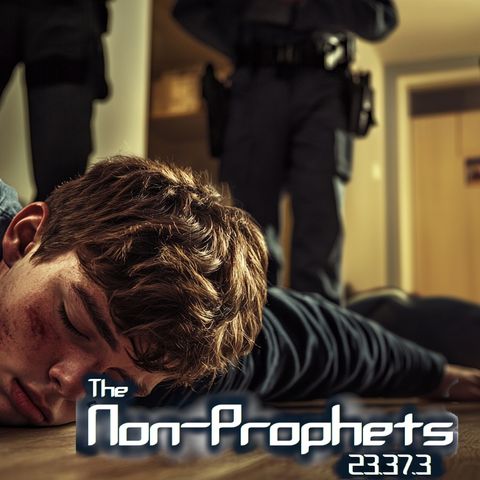Cops Keep Killing: When Does It End?

Download and listen anywhere
Download your favorite episodes and enjoy them, wherever you are! Sign up or log in now to access offline listening.
Cops Keep Killing: When Does It End?
This is an automatically generated transcript. Please note that complete accuracy is not guaranteed.
Description
https://apnews.com/article/lethal-restraint-police-tennessee-austin-hunter-turner-ca8b91c2f3dc9584094c6fc835d49deb https://apnews.com/article/lethal-restraint-police-tennessee-austin-hunter-turner-ca8b91c2f3dc9584094c6fc835d49deb AP News, By jeff Martin, on August 16, 2024 https://apnews.com/article/associated-press-investigation-deaths-police-encounters-02881a2bd3fbeb1fc31af9208bb0e310 AP News by john Seewer on March 28, 2024 A recent investigation led by the Associated Press, the...
show morehttps://apnews.com/article/lethal-restraint-police-tennessee-austin-hunter-turner-ca8b91c2f3dc9584094c6fc835d49deb
AP News, By jeff Martin, on August 16, 2024
Why did more than 1,000 people die after police subdued them with force that isn't meant to kill?
AP News by john Seewer on March 28, 2024
A recent investigation led by the Associated Press, the Howard Center for Investigative Journalism at the University of Maryland, Arizona State University, and Frontline PBS has uncovered that over a thousand individuals have died in encounters with police involving non-lethal force. This extensive report highlights systemic issues within law enforcement, including inadequate training, insufficient data transparency, and the pervasive "blue wall of silence" that obstructs accountability. The investigation reveals a troubling pattern where the use of force, even when deemed non-lethal, often leads to fatal outcomes, emphasizing the urgent need for reform.
The discussion raises critical questions about whether certain personality types are drawn to policing roles that might not suit their temperament. Some argue that policing attracts individuals who seek power and control, potentially leading to abusive behavior. This view suggests that a careful selection process and improved training are essential to ensure that those who enter the profession are fit for its demands. The conversation also touches on the broader issue of community policing versus an adversarial approach, especially in the context of the war on drugs, which has exacerbated the us-versus-them mentality in law enforcement.
The investigation revealed that out of the thousand deaths studied, only 28 police officers faced charges, and fewer than 200 cases resulted in settlements. This statistic underscores a significant issue: holding officers accountable is often hindered by political sensitivities and systemic resistance. For example, the case of a 23-year-old man who died after being placed in a prone position by police officers, despite having a history of seizures, illustrates how inadequate training and improper handling can lead to preventable deaths. The delay in disclosing the true cause of death to the victim's family further compounds the issue.
In the debate over policing, there is a middle ground between the "defund the police" movement and the "back the blue" stance. While acknowledging the need for effective law enforcement, the conversation also highlights the necessity of reforming police practices. The experience from Victoria, Australia, where a royal commission led to significant changes in police procedures, serves as a model for how transparency and accountability can reduce incidents of excessive force.
The role of body cameras in policing is another focal point. Recording police interactions provides transparency and can prevent misconduct, but it also offers a clearer view of the dangerous situations officers face. The panel discussion emphasizes that while body cameras can help protect both civilians and officers, they are not a panacea. Instead, they are a tool that, when combined with proper training and oversight, can contribute to more effective policing.
Ultimately, the conversation points to a need for a balanced approach to policing, one that includes proper training, accountability, and a reassessment of resource allocation. The discussion suggests that while some level of defunding or restructuring might be necessary, it is crucial to ensure that resources are redirected to areas that support effective and fair law enforcement. This includes investing in training for handling mental health crises and reconsidering the militarization of police forces.
The Non-Prophets, Episode 23.37.3 featuring Infidel 64, AJ, Damien H and Aaron Jensen
Information
| Author | Atheist Community of Austin |
| Organization | Atheist Community of Austin |
| Website | - |
| Tags |
Copyright 2024 - Spreaker Inc. an iHeartMedia Company
